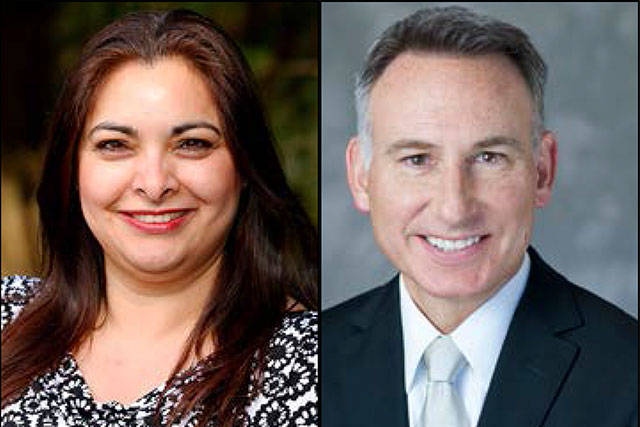Last week’s election brought a substantial change at the state level, giving the Democrats control of Senate, while at the county level, Executive Dow Constantine was re-elected to his third term.
Now, at both state and county levels of government, those involved say change is in the works. From her home on Maury Island, Senate Democratic Leader Sharon Nelson provided a long list of matters to be addressed when the next legislative session begins in January, ranging from economic development to women’s health care. The session lasts just 60 days and cannot be extended.
“We will have a bold agenda, but it is only a short session,” she said.
The first matter legislators will address is the capital budget, which includes $4.3 billion worth of investment in communities and affects some 19,000 jobs across the state.
“It is serious. We are working on something … that we can pass,” Nelson said.
Beyond the capital budget, Nelson said she and her colleagues will look at improving economic development in rural Washington, where many people have not recovered from the recession. Passing legislation regarding women’s health is also a priority, ensuring that women will have access to birth control regardless of where they work and that insurance will cover abortions.
Additional matters include passing a “dark money” bill to ensure that donations to political candidates can be tracked — not always the case now.
“This does some cleanup on that so we actually know who is behind the funding of elections,” she said.
For the LGBT community, Nelson said she intends for the Senate to pass a bill that bans conversion therapy — the practice of trying to change a person’s sexual orientation.
“It does a lot of damage particularly to youth and young adults,” she said. “It is not a practice we should be engaging in in this state, so we will be taking a look at that on the Senate floor.”
Also, working for the long-term, legislators will look at making Washington’s taxes more equitable.
“We have the most regressive tax system in the nation, and it really affects middle- and low-income families, so we will be looking at what we can do,” Nelson said.
Environmental issues are also expected to be addressed, and Nelson noted that some senators are looking at carbon pricing and are already working with House members and the governor to implement changes, if not during this session, then the next.
Nelson noted that she is excited about the possibilities, saying that one of her goals has been to retake the Senate majority, and now it has happened.
The Democrats gained a one-vote majority in the Senate with the election of Manka Dhingra, who represents Washington’s 45th District. This change puts the governorship, House and Senate under Democrat control. Nelson believes the change will hold through the elections next year. She said only one member will be up for re-election from a swing district, and he is a tough campaigner. She also said she believes the president will continue to give Democrats a boost at the election time.
“I think Trump is providing an excellent opportunity to pick up more seats for the House Democrats,” she said. “From Virginia to Washington state, his agenda is not resonating in the suburbs and urban areas in particular.”
Meanwhile, at King County, Constantine easily won his race, and he, too, is focused on change.
“Every election is an opportunity to take stock of where we are as a region and to plan for the future we want to create,” he said in a press release last week.
One of his priorities, according to Senior Deputy County Executive Fred Jarrett, is exploring new and better ways to serve unincorporated King County, including Vashon and Maury Islands. In support of this effort, Jarrett is assessing local services in unincorporated areas and examining several questions:
• What local public services are now being delivered, what local services should be delivered and what is the appropriate level for those services?
• What does it cost to provide the range of local services now delivered to the people who live in unincorporated King County?
• How can we improve the value of local services?
• How do services to unincorporated area residents compare to services to residents in neighboring cities and counties?
• What services do unincorporated area residents expect and can we move closer to meeting those expectations?
• How would improved levels of service be paid for?
Jarrett noted that county representatives will engage with residents before next summer to address these questions. Feedback from islanders and others throughout the county will help officials shape King County’s budget.
Beyond improving services to unincorporated areas, Constantine plans to focus on a range of additional priorities, according to the recent press release. Those include expanding the county’s homelessness response, providing mental health and addiction treatment on demand, offering more transit options and protecting rivers, streams, forests and farmland. Constantine also intends to focus on making sure young people have the chance to succeed and expanding opportunity and prosperity for all.



